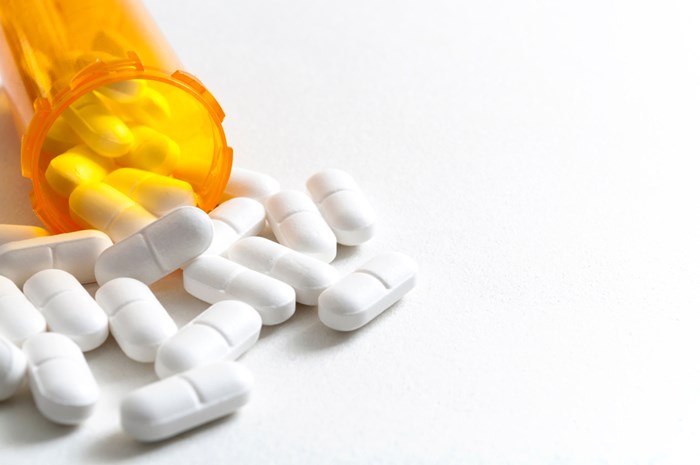Why Choose a Board-Certified Plastic Surgeon
Choose a board-certified plastic surgeon and be confident you are in the care of a highly trained surgeon you can trust.

There will always be some element of discomfort after a surgical procedure no matter if it is for therapeutic or cosmetic reasons. Opioid painkillers, such as Percocet, Vicodin, Norco and Tylenol with Codeine, have been around for years and are effective in the management of postoperative pain.
Beginning in the mid-1990s, the healthcare industry started calling pain the "fifth vital sign" and opioid prescribing began rapidly increasing. In 2019, we are now in the midst of the "opioid epidemic" where the United States consumes approximately 2/3 of the world's opioid medications. Grouped together, surgeons write about 10% of the opioid prescriptions annually.
As the public gets better educated and the effects of long-term opioid abuse are shown on the news, the tide has shifted toward more responsible use and prescribing of these powerful medications.
Every individual will have a different pain threshold and response to surgery. It is important for the recovery process that pain is adequately addressed and managed. That being said, there are some important steps that can be taken to minimize the risk of over-prescribing postoperative opioid medications.
Many plastic surgeons prescribe far fewer pills than in the past. For example, this may be only prescribing ten Vicodin tablets for breast augmentation patients instead of 30 or 60 as had been common practice in the past. It is helpful to pre-medicate patients with a long-acting non-opioid pain reliever the day before surgery and then continue this for 7-10 days. For many breast and body surgery patients, longer-acting local anesthetics such as Bupivacaine or Exparel, have significant benefits in alleviating the immediate postoperative pain and reducing the quantity of opioid medications consumed.
With proper prescribing, no history of prior substance abuse, and a defined reason for needing the medication, most patients are at a very low risk of becoming chronic opioid users. Communication with your surgical team is critical and sharing things like a family history of alcohol or drug abuse can help your doctor make the best prescribing decisions for your postoperative care.
Other risk factors for opioid abuse are male gender, history of sexual abuse and being in the age demographic of 15-45 years. If you have concerns about opioid addiction or the potential for misuse, please let your surgeon know.
Bupivacaine is a long-acting local anesthetic that can provide outstanding pain relief in the first 6-8 hours after a surgical procedure. Exparel is a longer-acting form of Bupivacaine that can last up to three days. Traditional Bupivacaine is usually covered by insurance and is included in cash-pay cosmetic quotes. Exparel is a newer medication and is not covered by many insurance plans and will often incur an additional charge for cosmetic cases. The goal in using long-acting local anesthetics is to decrease postoperative discomfort, reduce emergency room visits for pain control and ultimately decrease the amount of opioid pain medication required in the postoperative period.
Additionally, by reducing the number of opioids taken in the early recovery period, the Bupivacaine-based local anesthetics can help lessen some of the unpleasant side effect of opioid medications such as constipation, urinary retention and nausea. By combining the use of long-acting Bupivacaine-based local anesthetics in breast and body surgery with preoperative non-narcotic pain medications and muscle relaxants, current postoperative protocols have been able to significantly decrease the amount of narcotic pain medication that patients use after surgery.
If you are having significant uncontrolled pain after surgery, please let your surgery team know. There are several early complications, such as hematomas from blood collections, that cause pain out of proportion to the nature of the procedure and it is important to be in touch with your surgery team to make arrangements to be evaluated. Taking opioids after surgery has a place in the recovery process but their use does need to be done with forethought and judicious prescribing.
Part of the preoperative process is to educate patients on the medications they will be taking after surgery and clearly defining the role of each drug in the recovery process. Generally, patients experience the most discomfort in the first 1-2 days after surgery and this is a good time to use opioids, if necessary. After this time, the opioids should be tapered and then stopped as other drugs such as Valium, Celebrex, Meloxicam, Ibuprofen and Acetaminophen are used to primarily handle the discomfort of healing after surgery.
ASPS member surgeons are dedicated to being part of the solution when it comes to the opioid epidemic and are happy to speak with you to develop the best and safest recovery plan that is suited to your individual needs.
The views expressed in this blog are those of the author and do not necessarily reflect the opinions of the American Society of Plastic Surgeons.

